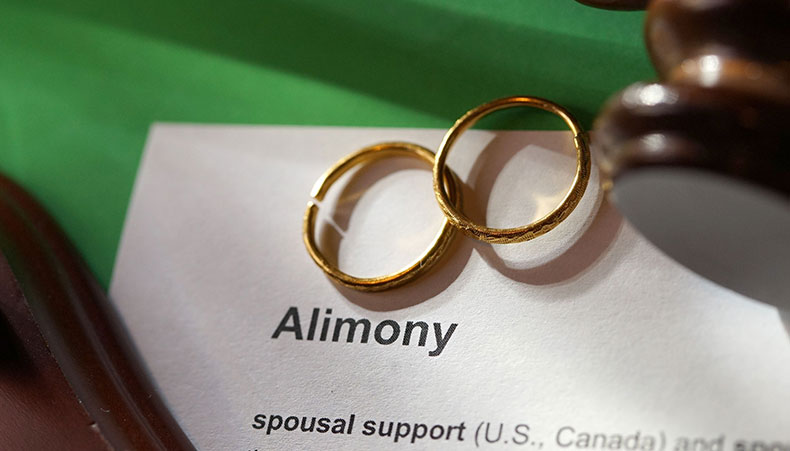
Georgia law does not limit how long alimony may last. The duration of alimony is defined by the particulars of the divorce case. The court may decide on the duration of alimony if the parties are unable to reach an agreement. The court takes into account a range of factors when deciding whether to grant alimony, how much to grant, and for how long.
In Georgia alimony is not guaranteed and it's based on a series of factors, but when it's awarded it is based on need and often is not awarded for longer than 25% of the length of the marriage. If the marriage is less than five years, then it may not be awarded at all. If both parties are high income earners, it may not be awarded at all. For deciding the duration of alimony payments, family courts often regard each divorce case as distinct.
A court may also take the following into account:
In some situations, alimony may be granted for a set amount of time to provide the spouse receiving it (the recipient spouse) time to reestablish their financial stability, maybe by finishing their degree or obtaining new employment. At times, alimony may be granted indefinitely, particularly when one spouse is unable to support oneself because of old age, poor health, or other circumstances.
In Georgia, alimony may take the following forms:
Temporary alimony, also known as "pendente lite" alimony, is awarded during the divorce proceedings to provide financial support to the lower-earning spouse until a final divorce decree is issued. This type of alimony is meant to cover immediate financial needs and maintain the status quo during the separation period.
Rehabilitative alimony is awarded to support the lower-earning spouse while they undergo education or training to acquire the skills necessary to become self-supporting. This type of alimony is usually time-limited and aims to help the recipient spouse gain the means to support themselves independently.
Permanent alimony is relatively rare and may be awarded in cases where one spouse is unable to support themselves adequately due to age, illness, or disability. It continues until the recipient spouse remarries, passes away, or a significant change in circumstances occurs.
Lump-sum alimony involves a one-time payment to the recipient spouse, often to equalize the division of assets or to provide financial support over a specified period. This type of alimony is non-modifiable as it is awarded as a certain sum to be paid.
Periodic alimony is more common than lump-sum alimony and involves monthly payments for a defined amount of time. For example, the paying party may pay the other spouse $2,000 per month for 60 months. This type of alimony can be modified or terminated based on certain circumstances.
Interestingly, there are three situations in which alimony may stop early and before the time period specified by the court or parties' agreement expires.
The requirement to continue paying alimony ceases if the spouse receiving it (the recipient spouse) marries again while the payments are still required to be paid. There are a few exceptions, but for the most part, alimony obligations are canceled upon remarriage.
Georgia Code Title 19, Domestic Relations Section 19-6-5 states that, unless otherwise specified, all obligations for permanent alimony, regardless of how they were created, must expire upon remarriage of the person to whom the obligations are owing. In other words, the receiving spouse loses their right to alimony if they get remarried.
Cohabitation by the recipient spouse and an intimate partner does not require the termination of alimony, as opposed to the recipient spouse's remarriage. In general, alimony is immediately ended if the recipient spouse gets remarried unless there is a different arrangement; however, alimony may be changed if the recipient spouse simply cohabitates with someone else. As a result, the paying spouse must ask the court to modify the amount of alimony due as a result of the recipient spouse's cohabitation. O.C.G.A. Section 19-6-19 (b).
In accordance with O.C.G.A. 19-6-7 (2020), in essence, this means that the spouse who is required to pay alimony no longer has to do so after that spouse passes away. Nonetheless, these payments may be recovered from the estate of the deceased spouse if the payments were meant to be lump sum alimony or if they were intended to be a settlement for property.
If the paying spouse can demonstrate that the recipient spouse's situation has significantly improved (for example, by winning the lottery, receiving a sizable inheritance, getting remarried, and so on.), support payments may be terminated suddenly through a divorce modification process. The paying spouse may also be able to change the amount of monthly payments by trying to prove continual financial hardship.
If you want to find out more and receive the support you need, call Georgia Family Law Attorney Sharon Jackson right away at (678) 909-4100 to schedule your free initial consultation.
Attorney Sharon Jackson LLC
175 Langley Drive, Suite A1
Lawrenceville, GA 30046
Phone: (678) 909-4100